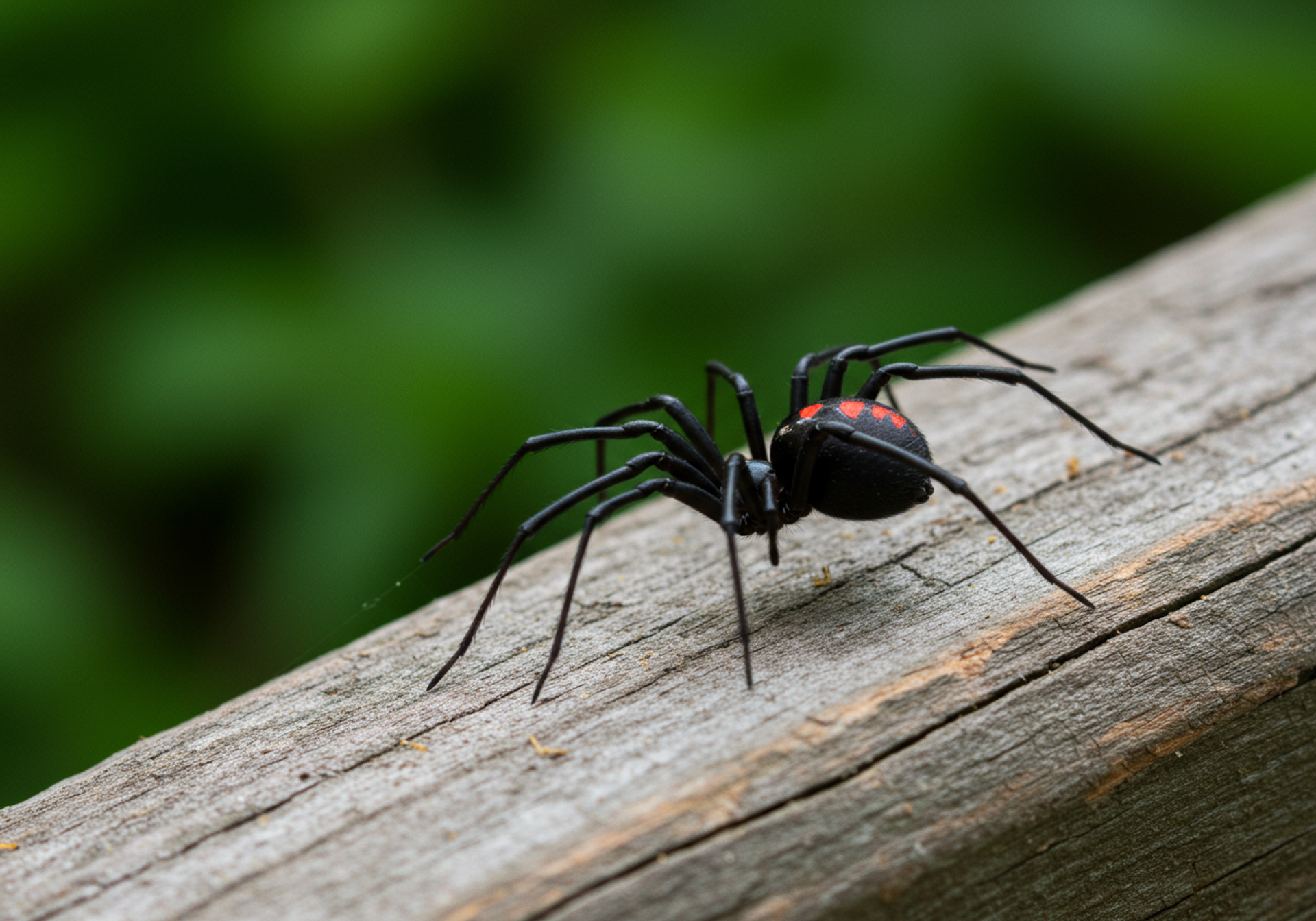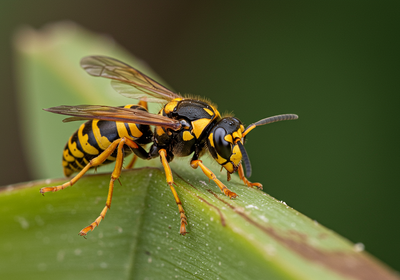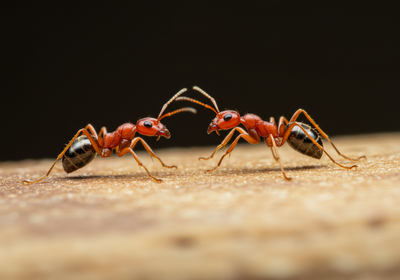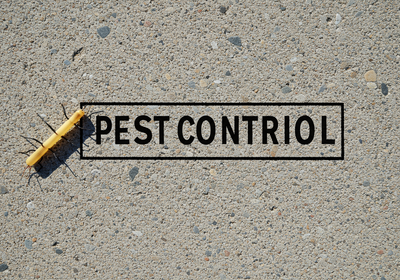
Black Widow Spiders in NJ: Your Homeowner's Guide to Safety
Worried about black widow spiders in New Jersey? This complete guide helps NJ homeowners identify these spiders, understand their risks, and learn effective prevention and pest control solutions from Resolve Pest Management to protect your family and home.
All You Need to Know About Black Widow Spiders in NJ
Seeing a spider in your home is rarely a welcome sight, but some spiders cause more concern than others. In New Jersey, one name often sends shivers down spines: the black widow spider. While these spiders aren't as common as some other household pests, understanding them is key to keeping your home and family safe.
At Resolve Pest Management, we believe that informed homeowners are empowered homeowners. Let's shed some light on black widow spiders in New Jersey – what they look like, where they hide, and what to do if you encounter one.
What Does a Black Widow Spider Look Like?
Identifying a black widow is crucial, and thankfully, the females have a distinctive look.
- Size: Adult female black widows are relatively small, usually about 1.5 inches long, including their leg span. The body itself is often about half an inch. Males are much smaller and generally harmless.
- Color: The most striking feature of the female is her glossy black body.
- Red Hourglass: On the underside of her rounded abdomen, you'll find the famous bright red or orange hourglass-shaped mark. Sometimes, this mark might be broken into two separate spots.
It's important to note that only the female black widow spider is considered dangerous due to her venomous bite.
Where Do Black Widows Live in New Jersey?
Black widow spiders prefer quiet, undisturbed areas. In New Jersey's climate, they seek out sheltered spots, especially as the weather cools. You're most likely to find them:
- Outdoors: In woodpiles, under rocks, in sheds, garages, eaves, outdoor furniture, and even in forgotten gardening equipment. They love dark, cluttered spaces.
- Indoors: While less common, they can venture inside your home, especially if there's an attached garage or basement. Look in crawl spaces, undisturbed corners of basements, cluttered storage areas, and window wells. They build irregular, messy webs, often low to the ground.
Black widows are not aggressive and typically only bite when they feel threatened, such as when their web is disturbed or they are accidentally pressed against skin.
Are Black Widow Spider Bites Dangerous?
Yes, the bite of a female black widow spider is venomous and can be dangerous, though fatalities are very rare, especially with prompt medical attention. Their venom is a neurotoxin, meaning it affects the nervous system.
Here's what you need to know:
- Symptoms: A bite might initially feel like a pinprick, or you might not notice it at all. Within an hour or so, you may experience:
- Localized pain, redness, and swelling.
- Muscle cramps and stiffness, often spreading from the bite area to other parts of the body (abdomen, back, chest).
- Nausea, vomiting, headache, sweating, and tremors.
- Severe cases can include elevated blood pressure and difficulty breathing.
- Severity: The severity of a bite depends on factors like the amount of venom injected, the individual's body weight, and their overall health. Children, the elderly, and those with compromised immune systems are at higher risk for severe reactions.
- Statistics: While thousands of spider bites are reported annually across the U.S., only a fraction are confirmed as black widow bites (estimated around 2,500 reports). The good news is that very few of these bites result in serious complications when treated properly.
If you suspect you've been bitten by a black widow spider, seek medical attention immediately. Try to remain calm, clean the bite area with soap and water, and apply a cold compress. If possible and safe to do so, try to capture the spider (or take a clear photo) for identification by medical professionals.
Prevention Tips for New Jersey Homeowners
Keeping black widows away from your home involves a few simple steps:
- Declutter: Regularly clean out cluttered areas in your garage, basement, attic, and shed. Reduce piles of wood, debris, and unused items where spiders can hide.
- Seal Entry Points: Inspect your home's foundation, windows, and doors for cracks or gaps. Seal these openings to block spiders and other pests from getting inside.
- Wear Gloves: When working in the yard, especially moving woodpiles or gardening, wear heavy gloves to protect your hands.
- Reduce Outdoor Lighting: Bright outdoor lights can attract insects, which in turn attract spiders looking for a meal.
- Clean Up Webs: Regularly sweep or vacuum away spider webs, especially in undisturbed corners.
When to Call a Professional for Spider Control
While preventive measures are helpful, finding a black widow spider in or around your home is a serious concern that warrants professional attention. Given their venomous nature, it's safer to have experts handle their removal and implement effective control strategies.
At Resolve Pest Management, we specialize in safe and thorough Spider Control services. Our experienced technicians understand the habits of black widow spiders and can identify their hiding spots, eliminate them, and put measures in place to prevent their return. We use family- and pet-friendly solutions whenever possible, ensuring your loved ones are protected.
We proudly serve homeowners across Ocean County and Monmouth County in New Jersey. Whether you're in Toms River, Brick, Lakewood, Bayville, Manahawkin, Freehold, Middletown, Howell, or any of the surrounding towns, Resolve Pest Management is your local expert. We're committed to rapid scheduling and reliable results, guided by our S.T.I.N.G. promise – Service, Trust, Initiative, Nurture, and Grit.
Don't Let Spiders Take Over Your Home
If you've spotted a black widow or are concerned about any spider activity, don't hesitate to reach out. For urgent situations, we also offer 24-Hour Emergency Pest Control.
Contact Resolve Pest Management today for peace of mind. Call us at (732) 527-5770 or email us at Office@resolvepestmanagement.com. Let us help you keep your home pest-free and safe.
More Blogs
Some other blogs you might be interested in



